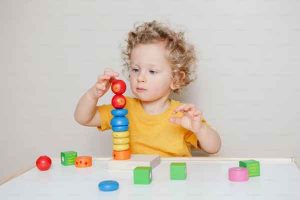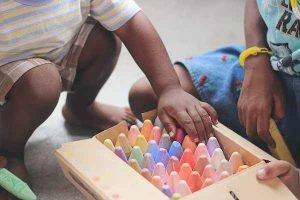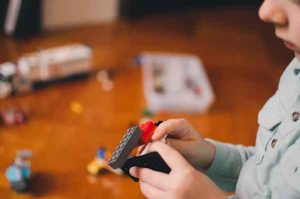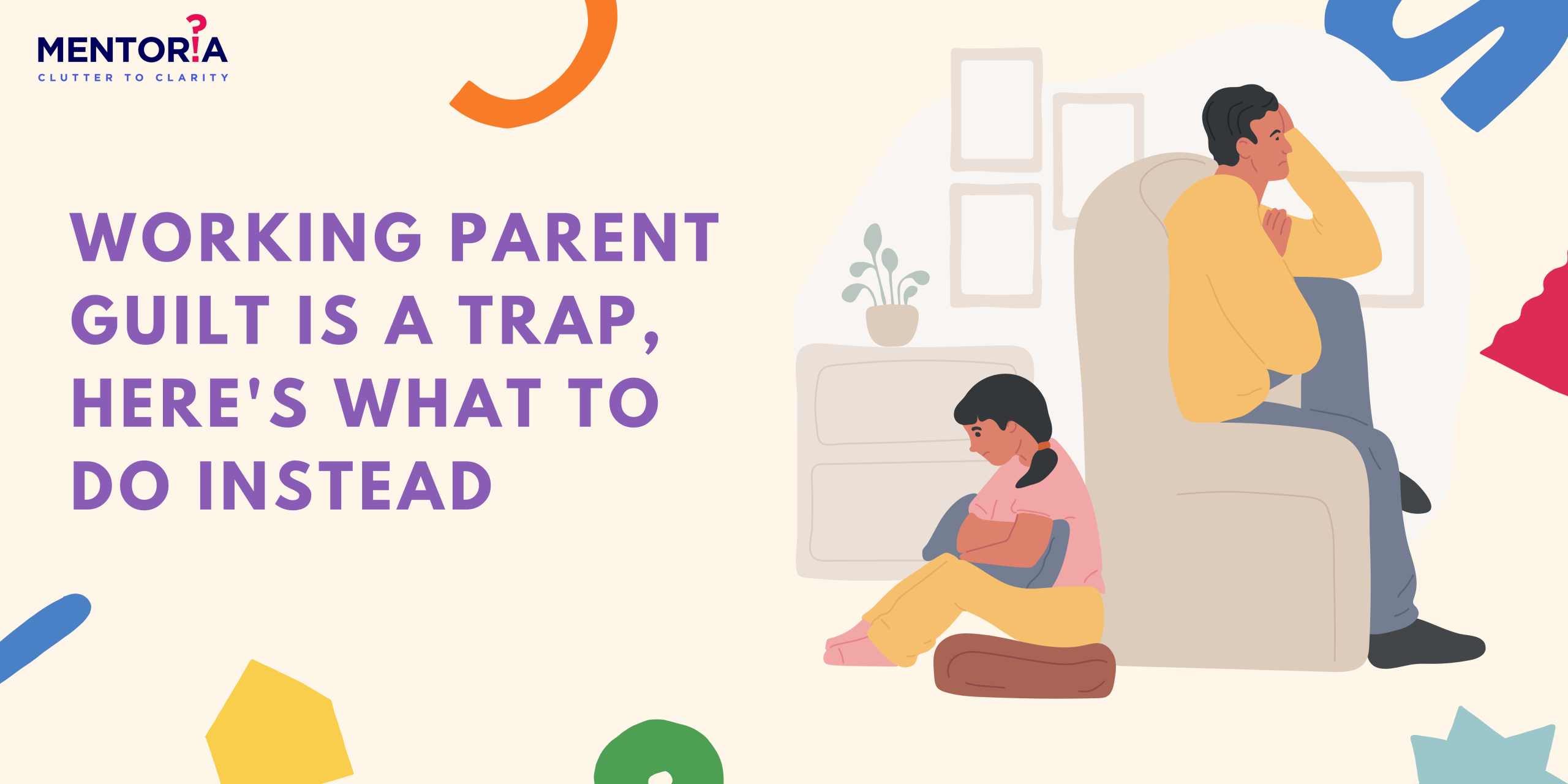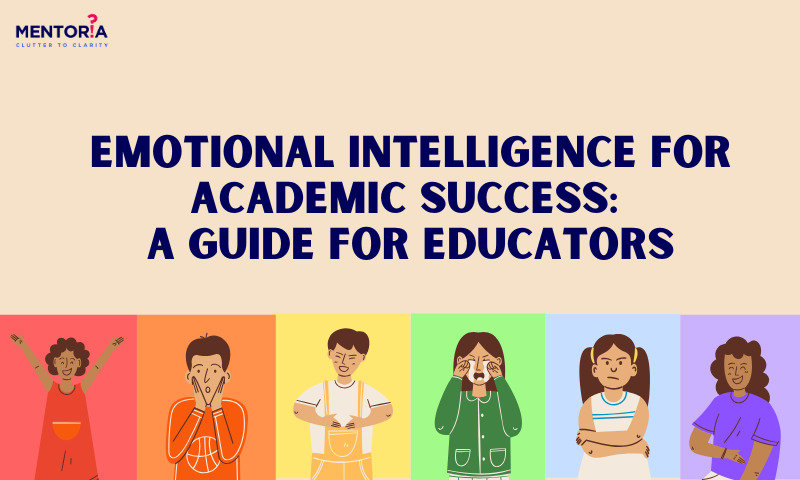The Pivotal Role Of Early Childhood Education (ECE) In A Child’s Journey
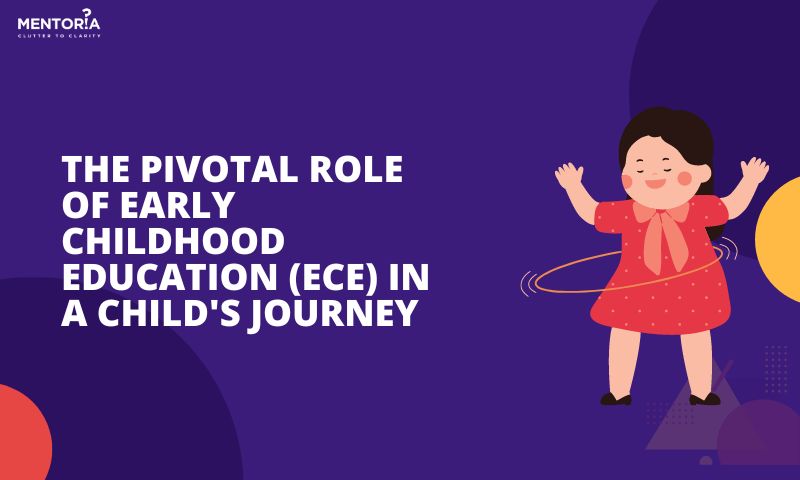
Jump to Section
In an awe-inspiring adventure of parenthood, you’ve likely found yourself amid countless decisions, from choosing the perfect crib to selecting the ideal bedtime story. Yet, in this dilemma of parenting choices, there exists a pivotal role of Early Childhood Education (ECE). As parents, we inherently recognise the profound impact of these formative years on our little ones, shaping the foundation of their future journeys.
In the warm embrace of early childhood, where giggles and curiosity intertwine, the role of education becomes paramount. It’s not just about ABCs and 123s; it’s about nurturing a love for learning, fostering social skills, and igniting the spark of creativity that will accompany our children throughout their lives. In this blog, we will tell you all you need to know about ECE and tell you why it’s not just a choice but a compass guiding our children on their extraordinary paths.
Early Years: The Power Of Early Beginnings
Early childhood, typically spanning from birth to eight years old, is a period of unparalleled receptivity and growth. During these formative years, the brain undergoes significant development, creating neural connections at an astonishing rate. Research suggests that 90% of a child’s brain develops by the age of five. This staggering statistic shows the urgency and importance of providing enriching experiences during these early years.
The initial years are akin to planting seeds in fertile soil; the quality of the soil determines the strength and resilience of the future tree. Early exposure to a stimulating environment, rich in sensory experiences, lays the groundwork for cognitive abilities, emotional intelligence, and social skills. This period becomes the cornerstone upon which the child’s lifelong learning journey is built, emphasising the profound impact of these early beginnings.
Beyond ABCs: Holistic Development In Early Childhood
Early childhood is not solely about ABCs and 123s; it’s a holistic journey of nurturing the complete child. ECE becomes the fertile ground where seeds of social, emotional, cognitive, and physical development are sown. It’s in the cosy corners of a kindergarten where friendships are forged, empathy is cultivated, and resilience takes root.
Consider the playground as the centre of life; here, children learn to navigate social dynamics, negotiate conflicts, and collaborate in imaginative play. These seemingly simple activities lay the groundwork for complex skills like teamwork, communication, and emotional regulation. Through engaging in activities that stimulate creativity and critical thinking, children develop problem-solving skills that extend far beyond the confines of the classroom. These skills become the tools they wield in the face of life’s challenges, instilling in them a sense of confidence and adaptability.
Parents play a crucial role in the holistic development of their children during early childhood, and their involvement can significantly impact various aspects of Early Childhood Education (ECE). Here are several ways parents can contribute to the holistic development of their children:
Create a Stimulating Environment:
- Provide a safe and stimulating home environment that encourages exploration and curiosity.
- Surround the child with age-appropriate toys, books, and educational materials to foster cognitive development.
Promote Social and Emotional Development:
Nurture a positive and loving relationship with your child to build a secure attachment.
- Encourage healthy emotional expression and help them understand and manage their feelings.
- Promote social skills through playdates and group activities.
Encourage Language Development:
- Read to your child regularly to promote language skills and a love for books.
- Engage in conversations, asking open-ended questions to encourage communication.
- Introduce new vocabulary and concepts through daily interactions.
Support Cognitive Development:
- Engage in activities that stimulate cognitive skills, such as puzzles, building blocks, and creative play.
- Foster a love for learning by exploring the child’s interests and incorporating educational elements into play.
Instil a Love for Learning:
- Demonstrate a positive attitude toward learning and curiosity.
- Encourage a growth mindset by praising effort and persistence rather than just outcomes.
- Explore nature, museums, and other educational outings together.
The Socio-Economic Impact Of ECE
Consider the socio-economic impact of early childhood education. Statistically, children from disadvantaged backgrounds who participate in quality ECE programs are 40% less likely to require special education services. It is important to break down barriers, provide equal opportunities, and create a level playing field for all children. Studies indicate that children who participate in high-quality early education programs are 20% more likely to complete high school.
Quality early education becomes a powerful instrument of social change, dismantling the obstacles that hinder the progression of marginalised communities. It’s not just about providing knowledge; it’s about empowering individuals to break free from the shackles of circumstance. ECE becomes the great equaliser, allowing every child to pursue their educational journey with a sense of possibility and potential.
The Human Touch: Nurturing Hearts And Minds Through ECE
Dedicated educators cease to be mere instructors; they become the steady guides in a child’s exploratory journey. Imagine the shared laughter in a circle of toddlers, the comforting hug from a teacher during a moment of uncertainty – these are the intangible but invaluable elements that define early childhood education. Research from the American Academy of Pediatrics indicates that play is not just enjoyable; it is crucial for cognitive, physical, and social-emotional development in young children.
It’s in the bonds formed between a child and their caregiver that trust blossoms, creating a safe space for exploration and self-discovery. These relationships become the emotional area that supports a child’s journey, instilling in them a sense of security and confidence. The laughter, the comforting touch, the understanding gaze – these human elements weave the fabric of a child’s early experiences, imprinting lasting impressions that shape their worldview.
Building strong bonds between a child and their caregiver is crucial for creating a foundation of trust, which, in turn, fosters a safe space for exploration and self-discovery. Here are ways parents can play a role in nurturing these bonds:
Responsive Caregiving:
- Respond promptly to your child’s needs, whether they are physical, emotional, or social.
- Consistently meeting their needs builds a sense of security and trust.
Physical Affection:
- Engage in physical closeness and affection, such as hugging, cuddling, and gentle touches.
- Physical touch promotes a sense of comfort and attachment.
Eye Contact and Communication:
- Establish eye contact during interactions to convey attentiveness and connection.
- Use positive and soothing communication to create a warm and supportive atmosphere.
Consistent Routines:
- Establish and maintain consistent daily routines, providing predictability for the child.
- Predictable routines create a sense of security and stability.
Shared Activities:
- Engage in activities that promote bonding, such as playing, reading, and exploring together.
- Shared experiences strengthen the emotional connection between parent and child.
Emotional Availability:
- Be emotionally present and attuned to your child’s emotions.
- Validate their feelings and provide comfort during times of distress.
Empathy and Understanding:
- Demonstrate empathy by understanding and acknowledging your child’s perspective.
- Show patience and tolerance, especially during challenging moments.
The Role Of Play In Early Learning
In the world of little ones, playing isn’t just fun; it’s like planting seeds of curiosity that grow into smart brains. Playing helps them make sense of things, like how blocks fit together or why leaves crunch under their tiny shoes. When they play with others, like friends, they learn to share and talk, building the friendship toolkit. When they stack blocks, it’s like doing brain push-ups. When they pretend to be superheroes, it’s like a marathon for their imagination. According to a study published in the Journal of Child Psychology and Psychiatry, children who engage in pretend-play show advanced levels of creativity. They depicted cognitive flexibility, vital skills that lay the groundwork for future academic success. Understanding the pivotal role of play in ECE emphasises the importance of creating environments that nurture curiosity and exploration, fostering a love for learning that lasts a lifetime.
Family Engagement Through ECE
Beyond the classroom walls, a child’s development is encouraged by family engagement. Parents, as the primary caregivers, play an instrumental role in supporting a child’s early learning journey. From reading bedtime stories to engaging in interactive activities, the involvement of families amplifies the impact of ECE. Research suggests that children with active parental engagement show higher levels of academic achievement and social competence. Recognising the family as a child’s first and most influential teacher emphasises the need for efforts between educators and families.
Technology In ECE: Navigating The Digital Landscape Responsibly
In an era where technology is everywhere, the role it plays in early education cannot be overlooked. However, navigating the digital landscape requires a delicate balance. Introducing age-appropriate technological tools can enhance learning experiences, providing interactive platforms that engage young minds. From educational apps to interactive storytelling, technology can be a valuable ally in ECE. Yet, it’s crucial to approach this integration with caution, ensuring that screen time does not overshadow crucial real-world experiences. Striking this balance is paramount, as responsible use of technology can broaden a child’s learning horizons without eclipsing the irreplaceable essence of hands-on exploration and human interaction. The National Center for Family and Community Connections with Schools reports that students with involved parents are more likely to exhibit higher academic achievement, improved behaviour, and increased social competence.
Working parents play a crucial role in the holistic development of their children, and taking the aspect of involvement seriously is important for several reasons. Research consistently suggests that students with involved parents tend to exhibit higher academic achievement, improved behaviour, and increased social competence. Here’s why working parents should prioritise their involvement in their children’s lives:
Academic Achievement:
Positive Reinforcement: When parents are actively involved in their children’s education, they provide positive reinforcement and encouragement, which can enhance academic performance.
Homework Support: Involvement allows parents to provide assistance with homework, offer guidance on study habits, and reinforce the importance of education.
Improved Behaviour:
Setting Expectations: Involved parents can set clear expectations for behaviour and values, promoting positive conduct both at home and at school.
Communication: Regular communication between parents and teachers helps address behavioural issues promptly and collaboratively.
Increased Social Competence:
- Modelling Social Skills: Parents serve as primary role models for social behaviour, and involvement allows them to model and teach essential social skills to their children.
- Social Opportunities: Engaged parents facilitate social opportunities for their children, such as playdates and extracurricular activities, contributing to the development of social competence.
Emotional Well-being:
- Secure Attachment: Involvement fosters a secure attachment between parents and children, promoting emotional well-being and resilience in the face of challenges.
- Open Communication: Being involved creates an environment where children feel comfortable expressing their feelings and concerns, leading to better emotional regulation.
Sense of Belonging:
- Family Connectedness: Involvement strengthens the sense of belonging within the family unit, providing a supportive foundation for a child’s overall development.
- School-Home Connection: Actively participating in school activities builds a bridge between the home and school environment, creating a cohesive support system for the child.
There are various online courses and books that can be beneficial for parents seeking further understanding of Early Childhood Education (ECE) to support their child’s growth. Here are some recommendations:
Online Courses:
Coursera – “Everyday Parenting: The ABCs of Child Rearing”
Provider: Yale University
- This course covers key parenting principles, child development, and effective strategies for managing behaviour.
edX – “Supporting Social and Emotional Development in Young Children”
Provider: University of Washington
- Explores strategies to support the social and emotional development of young children.
Parenting Science Online Classes
- Dr. Gwen Dewar, an anthropologist and parent educator, offers evidence-based online classes covering various aspects of child development.
- Khan Academy provides resources and lessons on parenting, including topics related to child development and education.
Books:
“The Whole-Brain Child: 12 Revolutionary Strategies to Nurture Your Child’s Developing Mind” by Daniel J. Siegel and Tina Payne Bryson
- This book explores how understanding brain development can help parents respond effectively to their child’s needs.
“How to Talk So Kids Will Listen & Listen So Kids Will Talk” by Adele Faber and Elaine Mazlish
- A classic guide that provides practical communication strategies for parents to foster better relationships with their children.
“Mind in the Making: The Seven Essential Life Skills Every Child Needs” by Ellen Galinsky
- The author explores the seven essential life skills that children need to thrive in the 21st century.
“Simplicity Parenting: Using the Extraordinary Power of Less to Raise Calmer, Happier, and More Secure Kids” by Kim John Payne and Lisa M. Ross
- Offers insights into simplifying family life to create a more balanced and nurturing environment for children.
“Raising An Emotionally Intelligent Child” by John Gottman
- Dr. John Gottman provides insights into nurturing emotional intelligence in children and fostering strong parent-child connections.
“NurtureShock: New Thinking About Children” by Po Bronson and Ashley Merryman
- Explores new research on child development and challenges conventional wisdom about parenting.
Mentoria’s Role In Guiding The Journey
In being a parent, we’ve talked about how important it is to help our little ones learn and play. Early childhood education helps them grow, learn, and have fun all at once. So, as we read stories, play games, and teach them new things, we’re actually building a strong base for their future. It’s like making a cosy home in their hearts for learning and friendship. ECE’s role in this adventure is like being the guide in their favourite story, showing them the way to a bright and happy tomorrow.
At Mentoria, we understand the critical role early childhood education plays in shaping your child’s journey. We’re not just here to provide support; we’re your dedicated partners in unlocking your child’s full potential. Our experienced team of counsellors at Mentoria knows that every child is unique, and their educational journey should be tailored to bring out the best in them. We’re here to create a personalised roadmap for success, ensuring that your child’s early learning experiences lay a strong foundation for a bright future.

